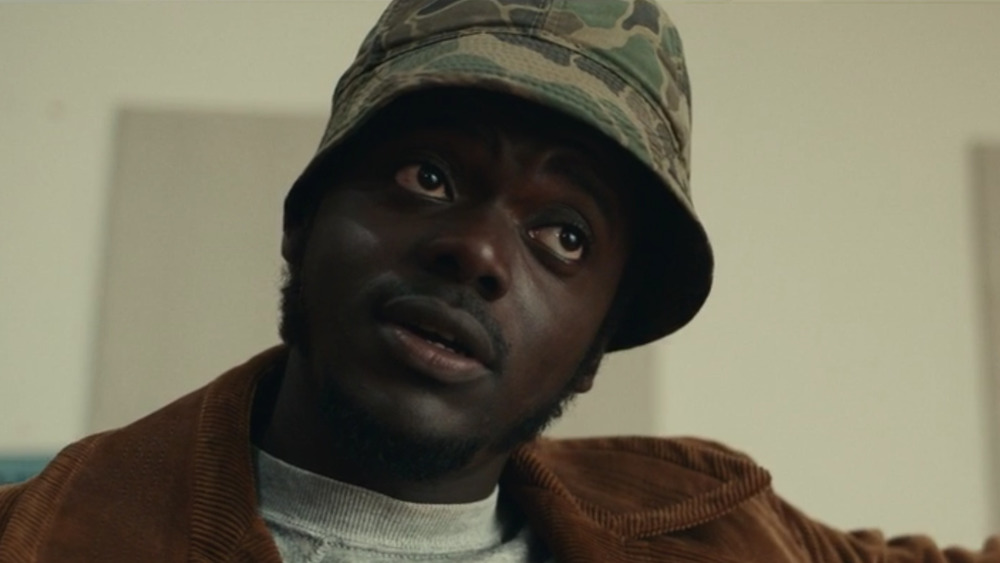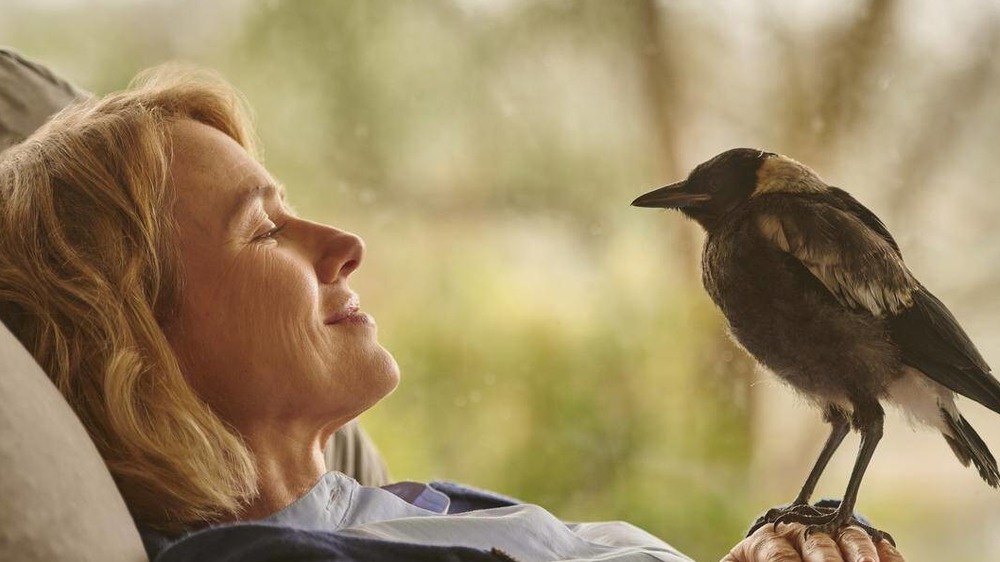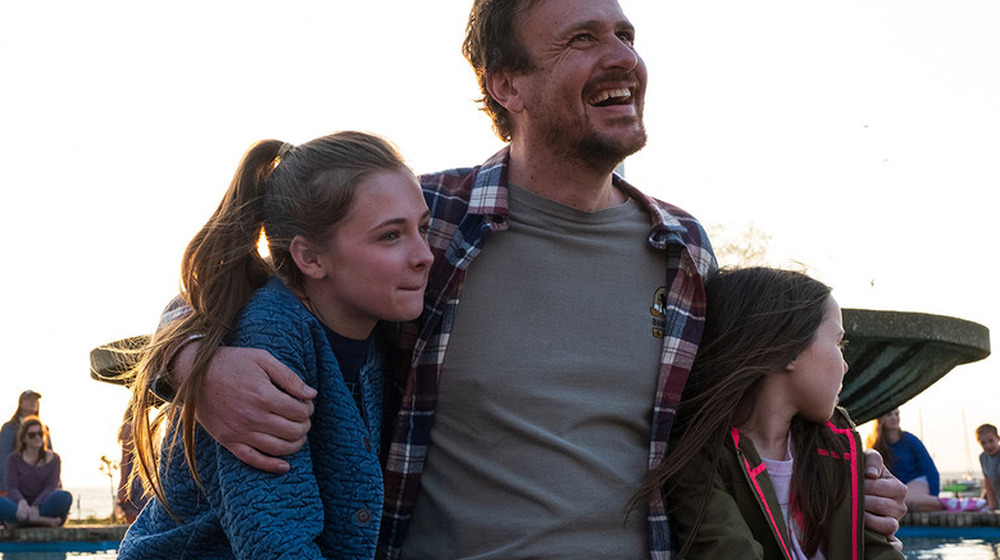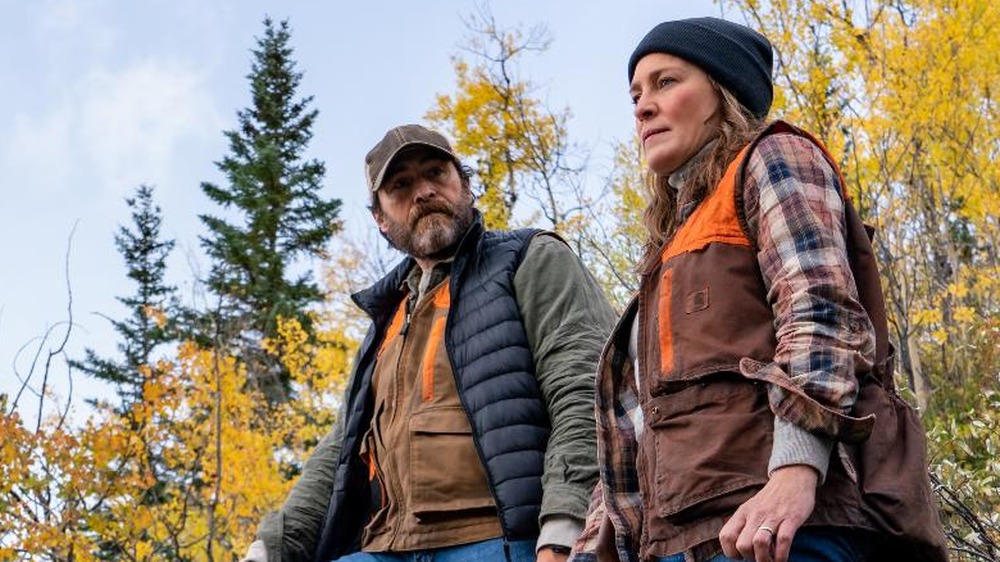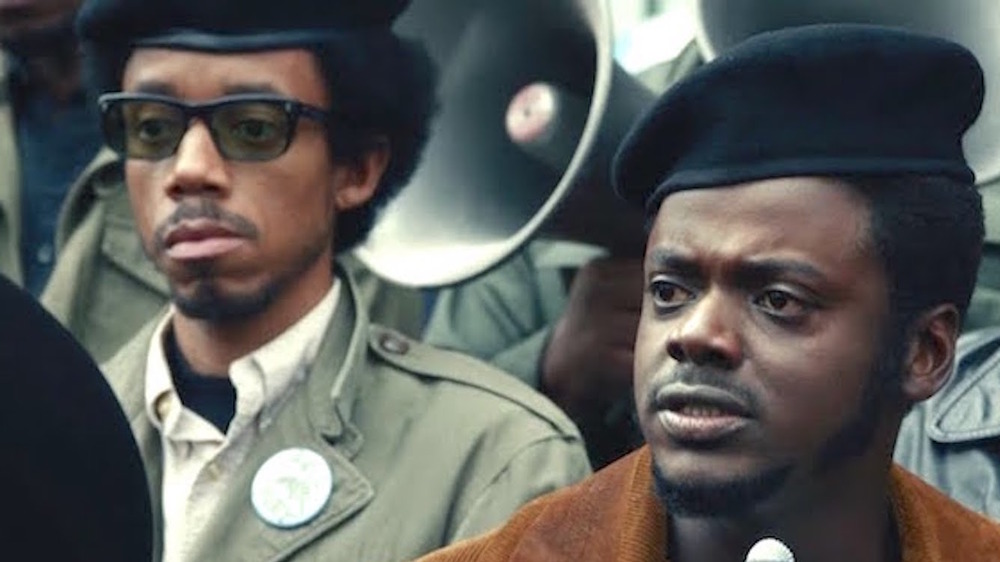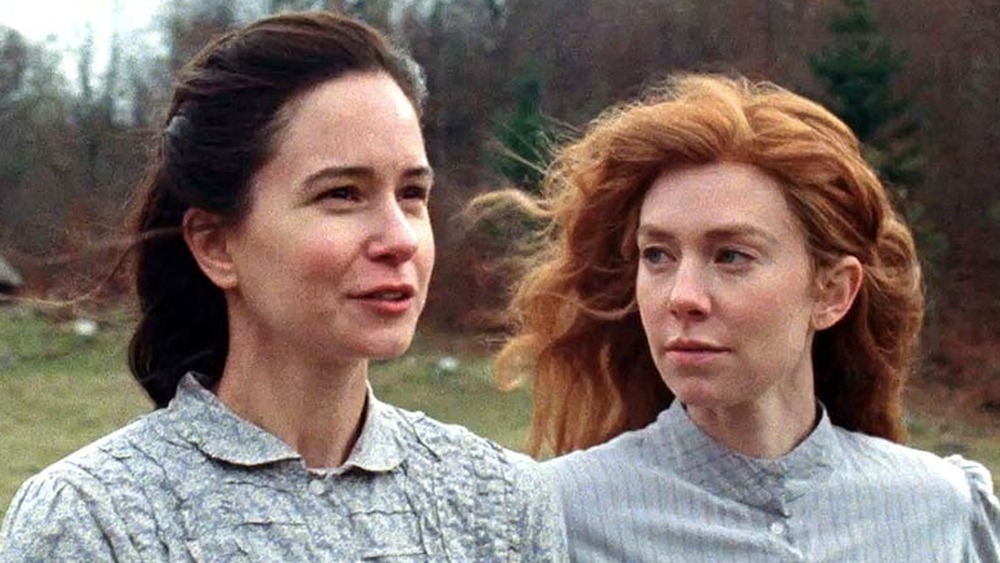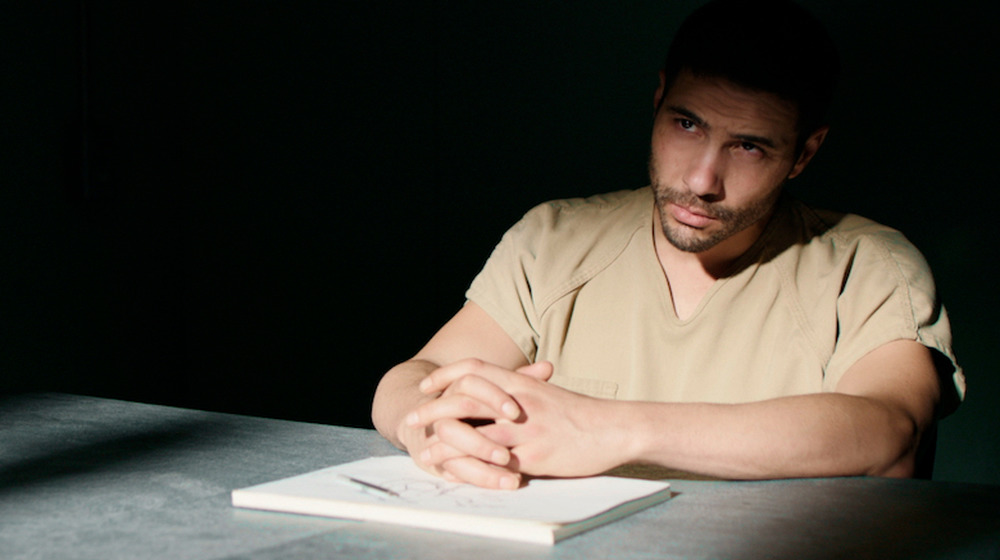The Best Dramas Of 2021
With 2020 in the rearview mirror, the future's film landscape is looking increasingly rosy. The year is positively brimming with quality premieres in every genre under the sun, as delayed debuts are adding to an already stacked calendar. The reopening of theaters persists alongside a greater array of streaming platforms, meaning many of this year's best films will have more viewing possibilities than ever before.
The drama category looks particularly strong. 2021 is shaping up to be a year of releases showcasing impressive directorial vision, stirring performances, and excellent scripts. The theme for the year seems to be both quantity and quality. From small productions about poignant personal tragedies to true tales of political injustice, there's a broad array of memorable movies to look forward to on screens both big and small. There's truly something for everyone: haunting historical LGBTQ romance, incisive legal dramas, and moving stories of loss. Here are the best dramas of 2021 — the films we'll be talking about all year and after.
Penguin Bloom
Penguin Bloom, based on Cameron Bloom and Bradley Trevor Greive's book of the same name, premiered at the 2020 Toronto International Film Festival before its initial 2021 theatrical run in Australia (it has since seen U.S. release via Netflix). The film is directed by Glendyn Ivin from a script by Shaun Grant and Harry Cripps. It stars Naomi Watts as Sam Bloom, a woman who suffers a tragic fall while on vacation in Thailand, resulting in partial paralysis. She returns to her native Australia to recover with her husband (Andrew Lincoln) and three sons, struggling with her new wheelchair-bound life.
One afternoon, her sons bring home an injured magpie chick whom they name Penguin. Sam finds herself caring for and eventually bonding with the bird. When Penguin eventually recovers and learns to fly, the despondent Sam gets a new lease on life. It's a moving family drama, with Lincoln and Watts pulling off emotionally complex performances. The script sticks fairly directly to the original story, but Grant and Cripps add a lot of life to the material. This fine drama should not be missed.
Our Friend
Our Friend (directed by Blackfish's Gabriela Cowperthwaite) took some time to find wider release, but our screens are all the better for it. The film, from a script by Brad Ingelsby (The Way Back), centers on Matt (Casey Affleck) and Nicole (Dakota Johnson), a couple living a relatively contented life with two daughters in Fairhope, Alabama. Nicole acts in the local theatre, Matt is a journalist, and all is seemingly well until Nicole receives an ovarian cancer diagnosis, causing their seemingly ideal life to go downhill fast. Mutual friend Dane (Jason Segel) decides to move in with the pair in Nicole's final year to lessen their burden somewhat.
The film is based on Matthew Teague's 2015 Esquire article 'The Friend," and the script as a whole follows the real-life events chronicled there. The film itself premiered initially at the 2019 Toronto International Film Festival under a different name before finally releasing in January 2021. Terminal cancer isn't the lightest cinematic fare, but the film gets a boost from the realistic performances of Affleck, Johnson, and Segel, each of whom leaven the serious dramatic weight with heartwarming moments. It's a deeply moving dramatic entry for the year.
Land
Land has been widely praised since its 2021 Sundance Film Festival premiere and subsequent theatrical release on Feb. 12. The film marks the directorial debut of Robin Wright. Known for her storied acting career in films from The Princess Bride to Wonder Woman, Wright both stars in and helms Land. Written by Jesse Chatham and Erin Dignam, the project focuses on Edee (Wright), a woman whose life is derailed by a tragedy and consequent suicidal grief. She isolates herself in a remote cabin in the mountains and attempts to live off the land while overcoming her traumatic past.
It's a film that takes the maxim "show, don't tell" to heart; the first act is nearly wordless. Overall, the film is an effective exploration of emotional pain, carried by Wright's stunning, vulnerable performance and aided by some smart directorial choices. The script is unexpectedly eloquent for all its sparseness, portraying the character's subtle, nuanced journey. Wright certainly succeeds in her first directorial outing.
Complementing these aspects of the film are some absolutely stunning shots from Bobby Bukowski, who captures everything from the beauty of the remote landscape to the loneliness and dangers of life in the wilderness.
Judas and the Black Messiah
Judas and the Black Messiah, directed by Shaka King from a screenplay he wrote with Will Berson, has critics buzzing following its wide release simultaneously in theaters and on HBO Max. Taking place in the late 1960s, the film focuses on the real-life story of petty criminal and Chicagoan William "Bill" O'Neal (here played adeptly by LaKeith Stanfield), whose arrest puts him in the FBI's sights for the unenviable task of infiltrating the Illinois chapter of the Black Panthers. O'Neal accepts the offer, getting to know Fred Hampton (an electric Daniel Kaluuya), the brilliant and charismatic leader whose work with the Party's Free Breakfast Program and Rainbow Coalition made him both a rising political star and a prime target in the federal government's efforts to destroy the Panthers.
The film follows O'Neal's increasing integration into the Panthers as he spies on them. His sabotage culminates in an insidious plan for the FBI — led by J. Edgar Hoover, whom Martin Sheen plays to sinister effect — to assassinate the young phenom Hampton. It's a harrowing story based on, and largely accurate to, real historical events. Both Stanfield and Kaluuya give convincing performances. Stanfield, in particular, is up to the tough job of portraying a complex man pulled in multiple emotional directions: fury at the FBI's hold over him, greed for the money they pay him, fear over being outed as a rat, genuine admiration for Hampton and his cause, and guilt over his secret betrayal.
The well-structured script doesn't downplay or minimize the Panthers' radicalism, but contextualizes it in the complex conditions of the era. It also boasts several excellent supporting performances, effective cinematography by Sean Bobbitt, and sharp editing by Kristan Sprague. It will definitely be remembered as among the best films to come out this year.
The World to Come
The World to Come has enjoyed critical support since winning the Queer Lion award for the best LGBTQ-themed film of the fest at the 2020 Venice International Film Festival, and the film's 2021 theatrical release finally makes the film available to audiences outside the festival circuit. Directed by Mona Fastvold from a script by Ron Hansen and Jim Shepard (and based on Shepard's short story), The World to Come follows Abigail (Katherine Waterston), the soft-voiced, kind-eyed wife of the perpetually unsatisfied farmer Dyer (Casey Affleck). It's clear early on — and to Dyer's dismay — that any fire that a relationship could have has long been absent in theirs.
Abigail's life changes upon the arrival of the flame-haired Tallie (a charismatic Vanessa Kirby) and her stern and occasionally volatile husband Finney (Christopher Abbott). Abigail and Tallie fall in love and are forced to explore their newfound romantic feelings in secret, away from their increasingly frustrated husbands in this isolated mid-1800s farm town. It's a harrowing story driven largely by the unbridled passion of Tallie, who chafes against her husband's control.
Altogether, the modest production effectively highlights the perils of improbable, dangerous love. The script feels almost too literary at times, with Abigail's persistent narration lifted directly from the original story; still, Waterston's earnest delivery underscores the material's emotional depth. It's a fine historical romance anchored by fine performances, and a drama you don't want to miss.
The Mauritanian
The Mauritanian was directed by The Last King of Scotland's Kevin Macdonald from a screenplay by M.B. Traven, Rory Haines, and Sohrab Noshirvani. It adapts the 2015 memoir Guantanamo Diary by Mohamedou Ould Salahi, centering on his baseless 14-year detention at the infamous prison. The film, released in the U.S. on Feb. 12, follows Mohamedou's (Tahar Rahim) imprisonment and his hopes once his situation comes to the attention of defense attorney Nancy Hollander (Jodie Foster) and her associate, Teri Duncan (Shailene Woodley).
The pursuit of justice suffers many pitfalls, including the military's sometimes unscrupulous measures. The performances add considerable emotional heft to the film, with Rahim and Foster turning in excellent portrayals in their respective roles, and Benedict Cumberbatch ably appearing as Marine Corps lawyer Lt. Col. Stuart Couch. The plot has a number of revelations, twists, and turns that should please any fan of the legal drama subgenre.
The film is a perceptive retelling of a grievous historical wrong, backed by a solid cast and excellent directorial work by Macdonald. It's an uncomfortable film due to the nature of its subject and the shameful political history that surrounds it, but it's the kind of discomfort that deserves wider viewership and discussion.
